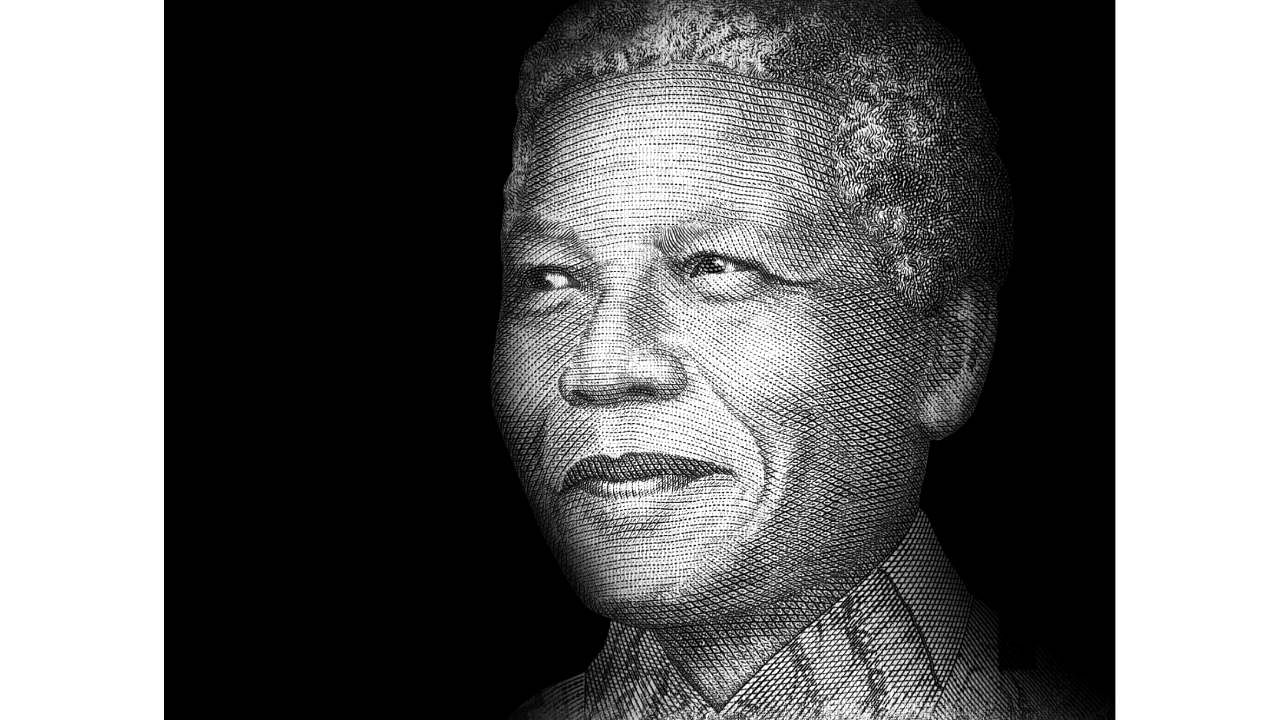
‘I have fought against white domination, and I have fought against black domination. I have cherished the ideal of a democratic and free society in which all persons live together in harmony and with equal opportunities. It is an ideal which I hope to live for and to achieve. But if needs be, it is an ideal for which I am prepared to die.’ – Nelson Mandela
Like generations before me I was awestruck. I was going to meet a legend. Ah, yes. There was that familiar, tall, slim figure wearing a colourful African shirt and that well known smile walking towards me. I panicked. What should I call him? He famously called the Queen “Elizabeth”, explaining (tongue in cheek) that she called him Nelson after all; but I couldn’t call him Nelson, could I? I settled for Madiba — the title often used, indicating his clan’s name.
“It’s an honour to meet you, Madiba,” I said as he clasped my hand in one of his famous handshakes. (He shook hands with everyone, friend or foe!) “It’s lovely to meet you,” he said. “Who do you think is going to win this world cup?” he asked me with a twinkle in his eye. “India, of course,” I burst out, taken by surprise at this unexpected opening. Mandela laughed. “We shall see,” he said. “Whoever wins, as long as the sport wins, it’s fine,” he said, “for sport has the power to change the world… It has the power to inspire. It has the power to unite people in a way that little else does.”
So now that we had got one of his favourite topics out of the way, I thought we could move on to the real interview. “Madiba, your original name was not Nelson, was it? Could you tell us a bit about that?” “Well, my name was Rolihlahla Mandela. But in those days, a 100 years ago, the white man would change our names to make it something that they could pronounce. So, it was my school teacher who changed it to Nelson when I was 7. But I truly lived up to my original name,” he said, guffawing. “You see, Rolihlahla means ‘troublemaker’ in Xhosa. And that is truly what I was destined to be.”
I laughed too and then asked him to tell me more about his youth. “My father was the principal counsellor to the Acting King of the Thembu so I had access to education. I joined up for a Bachelor in Arts. but was expelled from college for joining in a student protest. The king was furious. I ran away to Johannesburg and got a job there. I did eventually complete my Bachelor of Arts. and even a diploma in Law. I was, however, a poor student. I wish I hadn’t been. Education is the most powerful weapon which you can use to change the world.”
“From 1944, my life has mostly been in the public eye.” “Mostly?” I queried. “Well, after what came to be called the Treason Trial in 1956 and the subsequent state of emergency that was declared when many of us were accused of anti-national activity, I went underground for a while. People even called me the Black Pimpernel — you know, like the Scarlet Pimpernel from the story. I became quite good at evading the police, even dressing up as a chauffeur at one point,” he said, breaking out into a huge grin.
“Finally, in June 1964, I was sent to prison on Robben Island. I believe tourists visit the place today! I was let out neither for family funerals nor anything else until in 1988 I was diagnosed with Tuberculosis. After a few months in hospital, I was sent to a house at Victor Verster Prison. They did offer me ‘conditional’ release several times but the ‘conditions’ were simply not acceptable.”
“27 years of prison!” I whispered. “How could you work so cordially with those who imprisoned you?!” I exclaimed. “Enmity gets us nowhere. Working together, de Klerk and I laid the foundation of a democratic South Africa. We even shared a Nobel peace prize!”
I sighed. It was impossible to imagine the capability for forgiveness that this man had. “After a one-term presidency, you stepped down. Don’t you think you could have done more by staying President?” I asked. “After all, as you yourself told the voters, all they had to do was search their ballots for the picture of the ‘very handsome young man’ which they were all more than ready to do.” Madiba laughed. “I did say that! Was I wrong? On a more serious note, though, there’s plenty to do whether in politics or without. The fight for freedom, justice and a better world goes on. A winner is a dreamer who never gives up.”
“You were an honorary citizen of several countries, weren’t you?” “Yes, even of the USA, where I was not removed from the terror watch list until 2008 when I was already 89 years old,” he chuckled.
“Your birthday, July 18, is celebrated internationally calling for individuals to help change the world. But what was something that inspired you to change the world?” I asked.
“Have you read Henley’s “Invictus”?” he asked. “I am the master of my fate. I am the captain of my soul,” I quoted as he smiled at me approvingly and walked away.